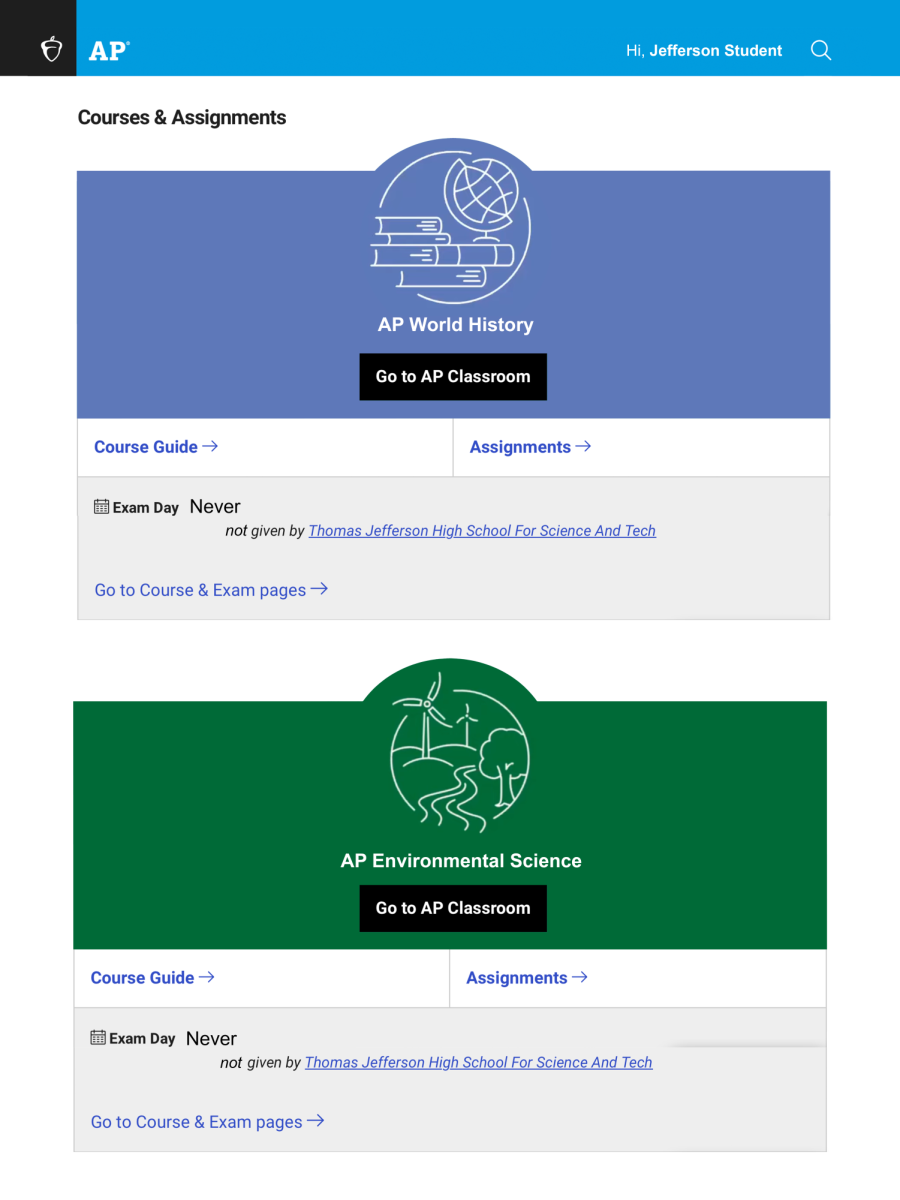Thought experiment: let’s consider an incoming freshman who’s looking to build a four-year plan. This student has already taken Algebra I and Geometry in middle school and plans on reaching their graduation requirements as efficiently as possible without cutting into their beloved summer break and free time during the year. How many openings will this student have in their schedule to spend on electives they enjoy?
The answer: across all four years, this student will have only four elective slots total.
This projection fails to include certain scenarios that would extend a given course across two years such as taking AB before BC Calculus or honors physics before Advanced Placement (AP) Physics, further limiting availability. It also assumes students entering Jefferson have already taken Algebra I and Geometry, again, not a guarantee. Furthermore, senior research prerequisites are also excluded, which for some labs stack up quickly.
Should this student desire to participate in programs such as orchestra, band, theater or yes, journalism, throughout their time at Jefferson, the number of available elective slots drops even further. As such, in order to maximize enrollment, these courses offer guidance to students looking to accommodate the class in their four-year plan.
Some measures exist to alleviate some of the strain on these schedules, however they come at the cost of time outside of school, and the experience of taking certain classes for a full year. One common trick is taking Economics and Personal Finance as an 8th course through the Fairfax County Public Schools Online Campus due to its notoriously easy exams.
The most popular option lies in summer school, with subjects such as health and physical education, world languages, chemistry, and that pesky fourth history credit often getting the boot from students looking to stack their schedules. While effective in creating availability year after year, some would argue that replacing a period of physical activity for yet another spent sitting at a desk is a detriment to underclassmen.
There is some merit to the restrictive graduation requirements as they solidify the rigor of Jefferson. That said, such academic parameters should guide students rather than inhibit them.
It is clear that adding flexibility to these requirements while maintaining the Jefferson standard balances rigor with student interest, allowing for the exploration of topics at the same intensity as all other aspects of our school.
As it stands, freshmen are not enrolled in a history course their first year, and sophomores are placed into World History and Geography 2 rather than what’s typically offered at other high schools, AP World History. Another example lies in junior year as English 11 is mandated over AP Literature or AP Language.
While some of these decisions most likely occurred with the intention of preserving the structure of Jefferson’s combined IBEST and HUM programs, other courses do not fit this justification so well.
As an example, AP Environmental Science could be offered as an alternative to Geosystems during senior year. Although this move would uproot a cornerstone of Jefferson culture, the resulting effect would open up avenues for students interested in a deeper understanding of the subject matter.
While everyone’s starting position may differ in terms of math or world language credits, we’re all placed under the same restraints; the slew of required courses and additional credits tremendously limits students in their capacity to choose the classes they take and decide for themselves the type of high school experience they want out of Jefferson.
While opportunities such as summer school and 8th courses exist for a portion of students to get ahead of the game, others are forced to see it as a means of merely catching up to everyone else. By adjusting the way we look at Jefferson’s core curriculum, more options would present themselves to an ever-eager audience of students.

